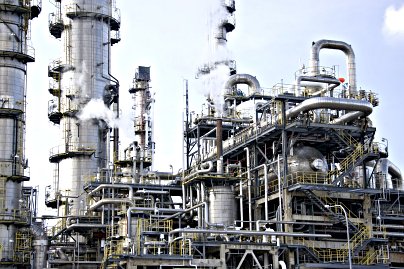As Americans head to the polls today, many are aware of the Big Oil and special interest bankrolling of efforts like California’s Prop 23 which would help derail progress toward the clean energy future. Aside from Kochtopus and Tesoro funding, the biggest funder of Prop 23 is Valero, a Texas oil company keen to avoid the domino effect of clean energy legislation. They have already contributed more than $5 million to support it, and it’s no wonder: They fear that climate legislation will hurt profits at their two California refineries.
The Tyee reports that Valero has ties to the tar sands in Alberta where California laws may one day lead to limits on Valero’s prospects for future growth – which depend a great deal on Alberta’s tar sands.
Why would a Texas oil company care about California clean energy laws? The Texas oil company owns several Alberta area refineries. Bill Day, a Valero spokesperson, calls Canada “a tremendous potential supplier for us.”
They’re eyeing up the tar sands because over the coming decades, the proposed Alberta-Texas pipeline would ship massive amounts of Albertan fossil fuels to Gulf Coast refineries. The highly controversial Keystone XL pipeline stretched from Alberta could eventually ship up to 600,000 barrels of oil per day to Texas and Louisiana. As they noted in their most recent annual report, “This large new source of crude oil for the Gulf Coast market will further diversify our feedstock slate and increase our ability to optimize our profitability”.
As tar sands oil has a much larger carbon footprint than conventional oil, climate change legislation targeted by Prop 23 would limit California’s imports of high-carbon fuels – fuels that would likely include toxic tar sands oil from Alberta. Valero’s Texas refineries may be halfway across the United States, but industry worries about the ‘domino effect’ of climate change legislative efforts and how they may be adopted elsewhere.
Valero’s Texas refineries have traditionally sourced heavy fuels from south of the border. But Mexican oil fields are declining and Venezuela is politically uncertain. So they’re looking north. Industry lobby groups predict they’ll nearly tripling of oil-sands production by 2025, with most fuel bound for U.S. markets.
Though some 2,600+ kilometres away, a vote today for Prop 23 is also a vote for further development of Canada’s climate-wrecking tar sands.
UPDATE: Here is a video summary of the gains and losses in Tuesday’s U.S. midterms from Newsy.com, noting the implications of Prop 23’s defeat:
pp
Multisource political news, world news, and entertainment news analysis by Newsy.com
Subscribe to our newsletter
Stay up to date with DeSmog news and alerts







